|
Books Should Be Free Loyal Books Free Public Domain Audiobooks & eBook Downloads |
|
|
Books Should Be Free Loyal Books Free Public Domain Audiobooks & eBook Downloads |
|
Religion |
|---|
|
Book type:
Sort by:
View by:
|
By: Laozi | |
|---|---|
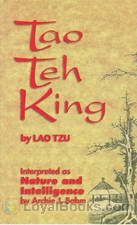 The Tao Teh King, or the Tao and its Characteristics
The Tao Teh King, or the Tao and its Characteristics
Written in classical Chinese some time during the sixth century BC, The Tao Teh King or The Tao and its Characteristics is a classical Chinese text that is one of the important keystones in understanding the thought systems of Asia. Though no clear records exist, it is traditionally thought to have been the work of the sage Lao Tzu, the founder of classical Taoism. He is reputed to have been a contemporary of Confucius, though this is also shrouded in mystery. However, many succeeding emperors and dynasties have claimed that he lived in their eras... | |
By: Francis Bacon (1561-1626) | |
|---|---|
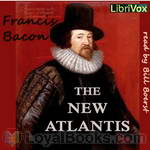 The New Atlantis
The New Atlantis
In 1623, Francis Bacon expressed his aspirations and ideas in New Atlantis. Released in 1627, this was his creation of an ideal land where people were kind, knowledgeable, and civic-minded. Part of this new land was his perfect college, a vision for our modern research universities. Islands he had visited may have served as models for his ideas. | |
By: Louis Ginzberg (1873-1953) | |
|---|---|
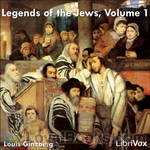 Legends of the Jews
Legends of the Jews
Rabbi Louis Ginzberg was one of the outstanding Talmudists of the twentieth century. He was born on November 28, 1873, in Kovno, Lithuania; he died on November 11, 1953, in New York City. Ginzberg taught at the Jewish Theological seminary from 1903 to 1953. For 50 years, he trained two generations of Conservative Rabbis.The Legends of the Jews is an epic 7-volume compilation of traditional Jewish stories loosely related to the Bible. Volumes 1-4 contain the stories, while volumes 5-7 contain Ginzberg’s notes and commentary... | |
By: Logan Marshall | |
|---|---|
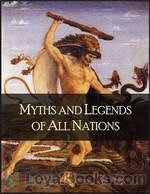 Myths and Legends of All Nations
Myths and Legends of All Nations
This excellent book contains many great stories from the various mythologies of man throughout the ages. | |
By: Anatole France (1844-1924) | |
|---|---|
 Thais
Thais
The fourth century ascetic Paphnuce, journeys from his remote desert hermitage to urban Alexandria determined to locate the stunningly beautiful and libertine actress, Thais. He earnestly desires that she convert to Christianity. Gaining an audience by deception, the hermit passionately speaks to the actress of eternity. Remarkably, Thais repents and retires to a convent for the rest of her days. The hermit however, cannot rid his mind of her charms, not even with the help of the most severe austerities. After years of anguish the monk learns of Thais' immanent demise and hastens to her side. There he confesses the unspeakable. | |
 Revolt of the Angels
Revolt of the Angels
Anatole France, in his satirical and allegorical fashion, weaves a tale of fantasy which finds a mischievous guardian angel stealing books from his earthly charge, who happens to be an archbishop in possession of a plethora of literature, mostly theological in nature. After voracious reading and then becoming a "fallen" angel, he decides to search for and recruit other "fallen" angels who devise a plan to attempt an overthrow of the rule which had set their fate, realizing that revolt is necessary and inevitable... | |
By: Upton Sinclair (1878-1968) | |
|---|---|
 The Profits of Religion
The Profits of Religion
The Profits of Religion: An Essay in Economic Interpretation is a non-fiction book by the American novelist and muckraking journalist Upton Sinclair, first published in 1917. It is a snapshot of the religious movements in the U.S. before its entry into World War I. In this book, Sinclair attacks institutionalized religion as a "source of income to parasites, and the natural ally of every form of oppression and exploitation." | |
By: Israel Zangwill (1864-1926) | |
|---|---|
 Children of the Ghetto
Children of the Ghetto
In this 1892 novel of London's Jewish East End, Israel Zangwill sets the apparently irrational and decidedly indecorous religious practices of transplanted eastern European Jews against the forces of assimilation. Zangwill's knowledge of Yiddishkeit and skill in melodrama created a series of unforgettable vignettes that had a significant effect on the public perception of this much stigmatized immigrant group. Israel Zangwill (1864-1926) was born in London of Russian and Polish parents. He coined the term cultural "melting pot". | |
By: Henry van Dyke (1852-1933) | |
|---|---|
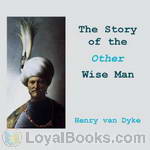 The Story of the Other Wise Man
The Story of the Other Wise Man
You know the story of the Three Wise Men of the East, and how they travelled from far away to offer their gifts at the manger-cradle in Bethlehem. But have you ever heard the story of the Other Wise Man, who also saw the star in its rising, and set out to follow it, yet did not arrive with his brethren in the presence of the young child Jesus? Of the great desire of this fourth pilgrim, and how it was denied, yet accomplished in the denial; of his many wanderings and the probations of his soul;... | |
By: Henry Van Dyke (1852-1933) | |
|---|---|
 The Mansion
The Mansion
| |
 The Story of the Other Wise Man
The Story of the Other Wise Man
| |
By: L. T. Meade (1854-1914) | |
|---|---|
 Sue, A Little Heroine
Sue, A Little Heroine
| |
By: Lewis Hodus (1872-1949) | |
|---|---|
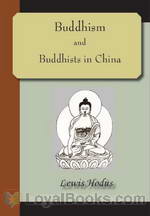 Buddhism and Buddhists in China
Buddhism and Buddhists in China
Buddhism and Buddhists in China is an anthropological text describing Buddhism as practiced in China at the beginning of the 20th Century. Interestingly, it also compares and contrasts Buddhism with Christianity with respect to or in response to missionary work. | |
By: George Manville Fenn (1831-1909) | |
|---|---|
 Quicksilver The Boy With No Skid To His Wheel
Quicksilver The Boy With No Skid To His Wheel
| |
 Mass' George A Boy's Adventures in the Old Savannah
Mass' George A Boy's Adventures in the Old Savannah
| |
By: H. G. Wells (1866-1946) | |
|---|---|
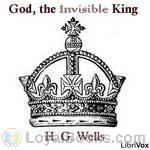 God, the Invisible King
God, the Invisible King
Wells wrote in his book God the Invisible King that his idea of God did not draw upon the traditional religions of the world: "This book sets out as forcibly and exactly as possible the religious belief of the writer. [Which] is a profound belief in a personal and intimate God." Later in the work he aligns himself with a "renascent or modern religion ... neither atheist nor Buddhist nor Mohammedan nor Christian ... [that] he has found growing up in himself." | |
 Soul of a Bishop
Soul of a Bishop
| |
By: Thomas Bulfinch (1796-1867) | |
|---|---|
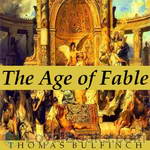 Bulfinch's Mythology: The Age of Fable
Bulfinch's Mythology: The Age of Fable
Bulfinch’s Mythology, first published in 1855, is one of the most popular collections of mythology of all time. It consists of three volumes: The Age of Fable, The Age of Chivalry, and Legends of Charlemagne. This is a recording of the tenth edition of the first volume, The Age of Fable. It contains many Greek and Roman myths, including simplified versions of The Iliad and The Odyssey, as well as a selection of Norse and “eastern” myths. Thomas Bulfinch’s goal was to make the ancient myths accessible to a wide audience, and so it is suitable for children. | |
 Bulfinch's Mythology: the Age of Fable
Bulfinch's Mythology: the Age of Fable
| |
 Bulfinch's Mythology
Bulfinch's Mythology
| |
By: John Foxe (1516-1587) | |
|---|---|
 Fox's Book of Martyrs Or A History of the Lives, Sufferings, and Triumphant Deaths of the Primitive Protestant Martyrs
Fox's Book of Martyrs Or A History of the Lives, Sufferings, and Triumphant Deaths of the Primitive Protestant Martyrs
| |
By: Isabella Alden (1841-1930) | |
|---|---|
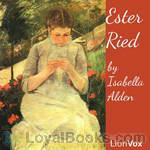 Ester Ried
Ester Ried
Authored by Isabella M. Alden under the pen name “Pansy.” Ester Ried’s life is a dull monotony of toiling at her family’s boardinghouse. She’s overworked, jealous and cranky, a poor example of a Christian to her family and associates. She awakens to a new attitude and commitment due to an extended visit with her cousin. | |
 Four Girls at Chautauqua
Four Girls at Chautauqua
Authored by Isabella M. Alden under the pen name “Pansy.” First in the Chautauqua Girls series. Four friends – spoiled, quirky Ruth; fun-loving and mischievous Eurie; poor, independent and brainy Marion; and meek, approval-seeking Flossy – attend Chautauqua on a lark, and their lives are changed forever. (Chautauqua is an adult education movement in the United States, highly popular in the late 19th and early 20th centuries. The Chautauqua brought entertainment and culture for the whole community, with speakers, teachers, musicians, entertainers, preachers and specialists of the day.) | |
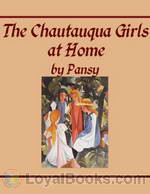 The Chautauqua Girls at Home
The Chautauqua Girls at Home
Sequel to Four Girls at Chautauqua. Ruth, Flossy, Eurie, and Ruth return home as new Christians, eager to begin working. Their new faith clashes with their old lives, which they must overcome, as well as the prejudices of friends and acquaintances. | |
By: William James (1842-1910) | |
|---|---|
 Varieties of Religious Experience
Varieties of Religious Experience
The Varieties of Religious Experience: A Study in Human Nature is a book by the Harvard psychologist and philosopher William James that comprises his edited Gifford Lectures on "Natural Theology" delivered at the University of Edinburgh in Scotland between 1901 and 1902. These lectures concerned the nature of religion and the neglect of science, in James' view, in the academic study of religion. Soon after its publication, the book found its way into the canon of psychology and philosophy, and has remained in print for over a century. | |
 Pragmatism
Pragmatism
'Pragmatism' contains a series of public lectures held by William James in Boston 1906–7. James provides a popularizing outline of his view of philosophical pragmatism while making highly rhetorical and entertaining lashes towards rationalism and other competing schools of thought. James is especially concerned with the pragmatic view of truth. True beliefs should be defined as, according to James, beliefs that can successfully assist people in their everday life. This is claimed to not be relativism... | |
By: M. M. Mangasarian (1859-1943) | |
|---|---|
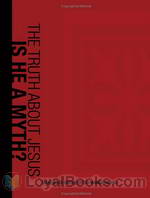 The Truth About Jesus. Is He a Myth?
The Truth About Jesus. Is He a Myth?
The following work offers in book form the series of studies on the question of the historicity of Jesus, presented from time to time before the Independent Religious Society in Orchestra Hall, Chicago, 1909. No effort has been made to change the manner of the spoken, into the more regular form of the written, word. | |
By: Herbert Allen Giles (1845-1935) | |
|---|---|
 Religions of Ancient China
Religions of Ancient China
An overview of the religions of China, beginning with Fu Hsi, B.C. 2953-2838, and continuing through the 19th Century. | |
By: Evelyn Underhill (1875-1941) | |
|---|---|
 The Life of the Spirit and the Life of To-day
The Life of the Spirit and the Life of To-day
| |
By: Robert Bridges (1844-1930) | |
|---|---|
 A Practical Discourse on Some Principles of Hymn-Singing
A Practical Discourse on Some Principles of Hymn-Singing
| |
By: American Bible Union | |
|---|---|
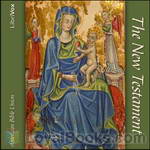 The New Testament
The New Testament
This Revised Testament has been prepared under the auspices of the American Bible Union, by the most competent scholars of the day. No expense has been spared to obtain the oldest translations of the Bible, copies of the ancient manuscripts, and other facilities to make the revision as perfect as possible. The paragraph form has been adopted in preference to the division by verse, which is a modern mode of division, never used in the ancient scriptures. But, for convenience of reference, the numbers of the verses are retained... | |
By: John Ruskin (1819-1900) | |
|---|---|
 Saint Ursula Story of Ursula and Dream of Ursula
Saint Ursula Story of Ursula and Dream of Ursula
| |